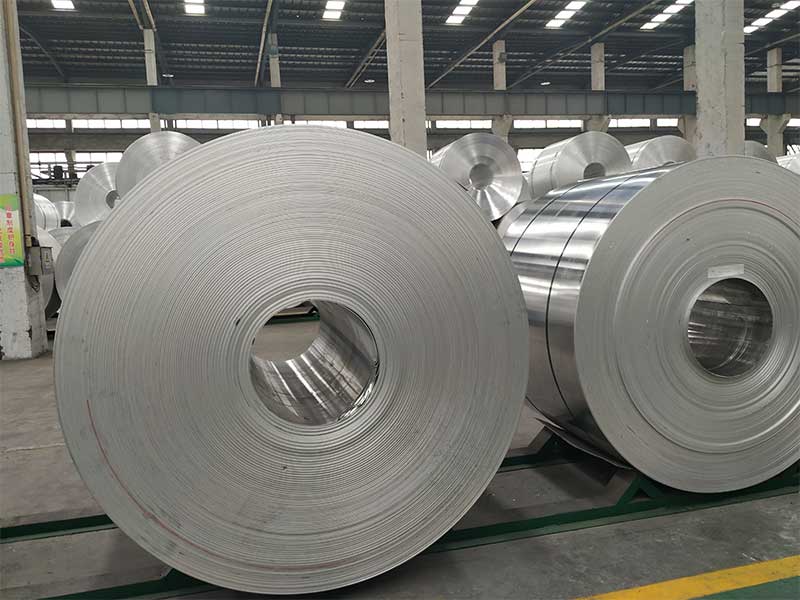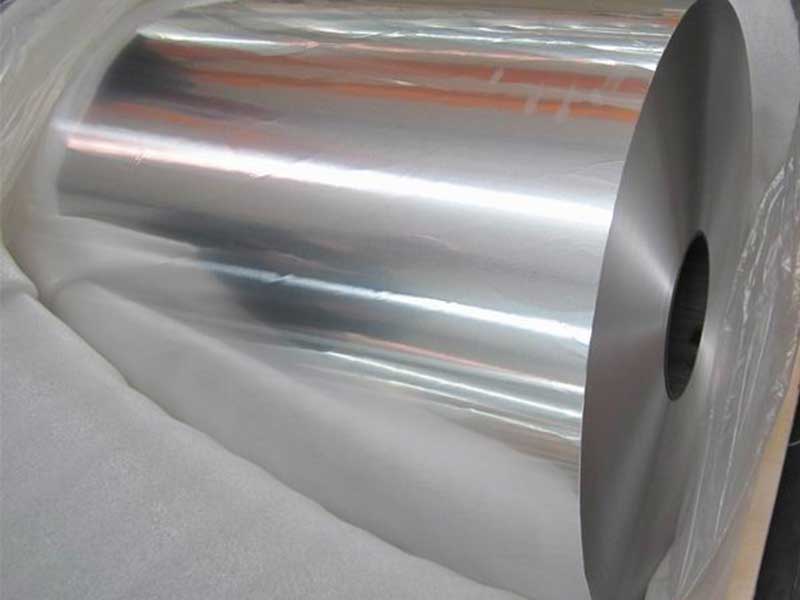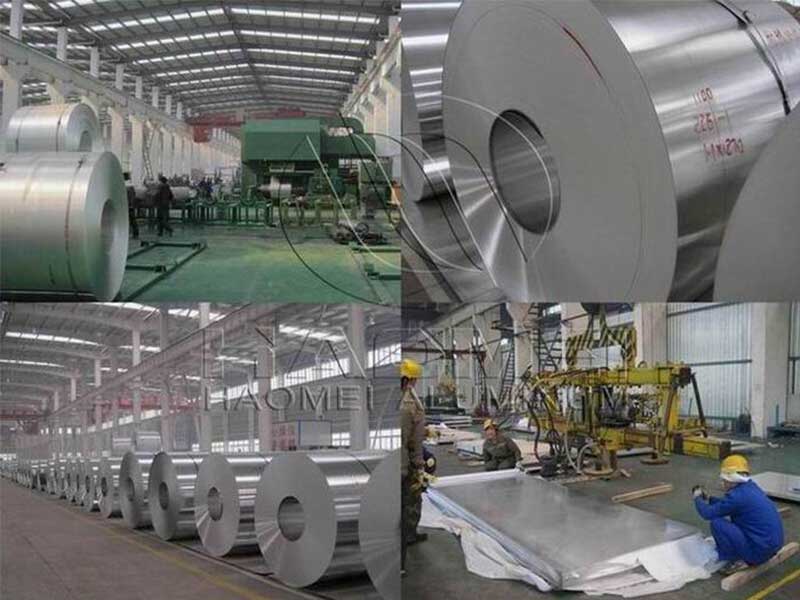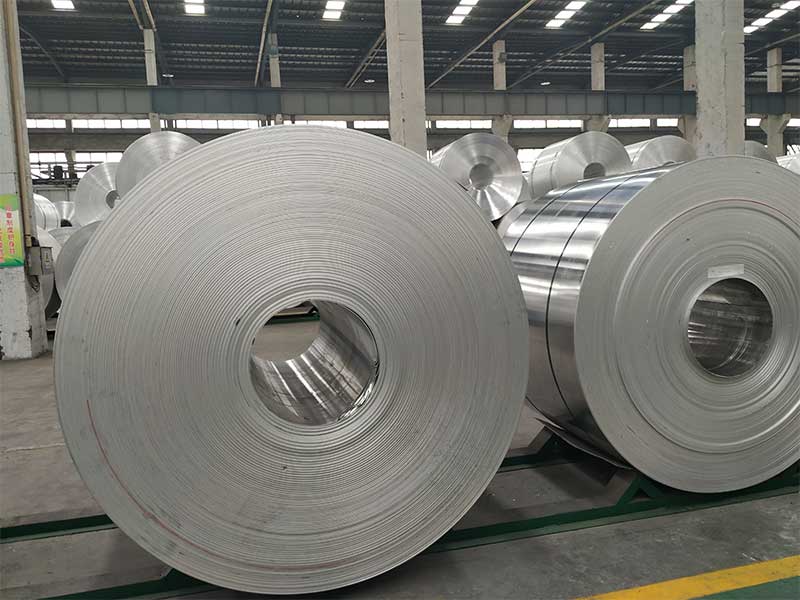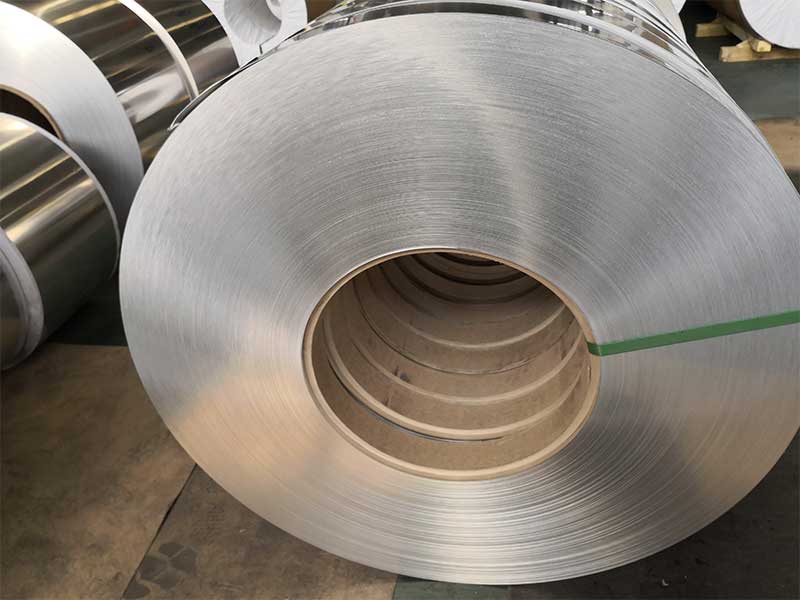2mm 3mm 4mm Aluminum Coil
Aluminum coils with thicknesses of 2mm, 3mm, and 4mm have become essential materials in various industries due to their exceptional physical properties and versatility. These coils are widely used in manufacturing, construction, transportation, and many other sectors requiring lightweight yet sturdy materials.
Aluminum coils are thin, flat sheets of aluminum rolled into coil form after processing. Due to aluminum's low density, good corrosion resistance, excellent thermal and electrical conductivity, and moderate strength, aluminum coils can meet strict performance requirements across multiple industries.
Common Thickness Options:
- 2mm: Offers a precise balance of flexibility and strength.
- 3mm: Ideal for more structural applications needing enhanced rigidity.
- 4mm: Used when maximum strength and firmness are prioritized in heavy-duty contexts.
2. Features of 2mm, 3mm and 4mm Aluminum Coils
| Feature | Description |
|---|---|
| Material | Usually 1000, 3000, 5000 series aluminum alloys for optimal balance of strength & flexibility |
| Thickness | Available in 2mm, 3mm, and 4mm gauge, ensuring customization to project demands |
| Corrosion Resistance | Excellent due to the formation of a protective oxide layer |
| Weight | Lightweight compared to steel, facilitating better load efficiency in engineering designs |
| Surface Finish | Available in mill finish, anodized, painted (PVDF), or embossed depending on requirements |
| Formability | Good malleability enabling bending, shaping, punching, and cutting during fabrication |
| Thermal Conductivity | High thermal conductivity allows efficient heat dissipation (approx. 205 W/mK) |
| Recyclability | Environmentally friendly, 100% recyclable without loss of properties |
3. Chemical Composition
| Alloy Group | Element | Typical Composition (wt%) |
|---|---|---|
| 1xxx Series | Aluminum (Al) | 99.0% minimum |
| Silicon (Si) | ≤ 0.25 | |
| Iron (Fe) | ≤ 0.40 | |
| Copper (Cu) | ≤ 0.05 | |
| 3xxx Series | Aluminum (Al) | Balance |
| Manganese (Mn) | 1.0 - 1.5 | |
| Silicon (Si) | ≤ 0.60 | |
| Iron (Fe) | ≤ 0.70 | |
| 5xxx Series | Aluminum (Al) | Balance |
| Magnesium (Mg) | 3.0 - 5.0 | |
| Manganese (Mn) | 0.3 - 1.0 | |
| Iron (Fe) | ≤ 0.40 |
Note: Alloy choice varies by user requirement — 1xxx for pure aluminum uses, 3xxx or 5xxx for more enhanced mechanical strength.
4. Mechanical Properties
| Thickness (mm) | Alloy Series | Yield Strength (MPa) | Tensile Strength (MPa) | Elongation (%) | Hardness (HB) |
|---|---|---|---|---|---|
| 2 | 1050 (1xxx) | ≥ 40 | 70 - 110 | ≥ 12 | 25 - 35 |
| 3 | 3003 (3xxx) | ≥ 95 | 140 - 175 | ≥ 12 | 45 - 60 |
| 4 | 5005 (5xxx) | ≥ 145 | 215 - 280 | ≥ 10 | 60 - 80 |
5. Typical Applications
| Industry | Application Examples | Suitable Alloy / Thickness |
|---|---|---|
| Architecture | Roof panels, curtain walls, facades, window frames | 3mm - 4mm, 3003 & 5005 alloys |
| Transportation | Body panels for trucks, trailers, bus, train carriages | 2mm - 4mm, 5005 with strengthened properties |
| Packaging | Household roofing sheets, packing containers, cans | 2mm, 1xxx series |
| Marine | Boat panels, decks, and hull of smaller watercraft | 4mm, 5xxx series (high corrosion resistance) |
| Electrical | Heat sinks, transformers, electrical enclosures | 2mm, 1xxx series, due to good conductivity |
| General Fabrication | HVAC ducts, cladding, roofing, appliances | 2mm to 4mm, mixed alloys |
6. Advantages of Choosing 2mm - 4mm Aluminum Coil
- Weight Efficiency: Optimum gauge selection reduces weight without compromising strength.
- Rust Proof: Survives harsh climates reducing maintenance costs.
- Processable: Easily cut, bent, stamped, welded, allowing flexible manufacturing workflows.
- Cost-effective: Reasonable cost compared to thicker metals with equivalent durability.
- Visual Appeal: Options for anodizing/painting enhance aesthetics and protect surfaces.
7. Conclusion
The 2mm, 3mm, and 4mm aluminum coils serve extensive industrial needs by combining light weight with sustainable endurance, exceptional surface finish, and good formability properties. With variable alloys catering to different hardness, corrosion resistance, and thermal properties, manufacturers and architects benefit from these coated and non-coated aluminum coils in diverse applications ranging from architecture to automotive and marine. Choosing the correct coil thickness and the right alloy can optimize both product performance and life cycle cost.
Working with 2mm, 3mm, and 4mm aluminum coils reveals distinct processing challenges and application-specific considerations. The 2mm coil, while readily formable and lightweight, is prone to scratching and marring during handling and fabrication. Its thinner gauge requires more careful attention to tooling and press settings to avoid buckling or tearing. We often see issues with consistent surface finish, especially on high-speed production lines, necessitating meticulous coil cleaning and potentially specialized lubrication techniques. The yield strength differences between batches of 2mm coil also demand careful monitoring of forming parameters to maintain consistent product quality.
Conversely, the 3mm and 4mm coils offer improved rigidity and strength, making them suitable for applications requiring greater durability. However, their increased thickness presents challenges in bending and forming, potentially requiring more powerful machinery and potentially leading to increased energy consumption. We've found that tooling wear and tear is significantly higher with thicker coils, requiring more frequent maintenance and tool replacements. Furthermore, the heavier weight necessitates more robust handling equipment and safer operational procedures. these differences in material behaviour and the associated processing needs allows for optimized production strategies and ultimately minimizes waste and maximizes efficiency.
For Inquiries and Orders:
Contact Haomei Aluminum CO., LTD., Inc. for high-quality aluminum coils with guaranteed specifications and prompt delivery tailored to your exact project needs.
References:
- Aluminum Association Standards
- ASTM B209 - Aluminum and Aluminum-Alloy Sheet and Plate
- EN 485-4 - Aluminium and Aluminium Alloys: Coil Coating
If you need more detailed datasheets, processing advice, or samples, please feel free to reach out!


